The Dubai skyline is constantly evolving – a testament to ambition and innovation. But what does the future hold?
For years, Dubai has been synonymous with luxury real estate, attracting investors from across the globe. Yet, recent shifts are reshaping the market, presenting both challenges and exciting opportunities. It’s not just about flashy skyscrapers anymore.
Imagine owning a property in a city that continues to redefine itself – one that offers unparalleled lifestyle amenities, strategic growth potential, and a thriving business ecosystem.
Let’s delve into the key trends shaping Dubai’s real estate landscape for 2025 – insights you need to understand before making your next investment.
Dubai Real Estate Futures
It’s easy to get caught up in the headlines about Dubai’s booming property market – the glittering towers, the luxury sales, the constant growth figures. But that picture might not fully represent what lies ahead.
A steady increase in prices alone doesn’t tell the whole story; it obscures shifts happening beneath the surface of this dynamic city.
Many investors are focused on short-term gains, while developers and analysts are anticipating a period of significant evolution.
The key isn’t simply predicting which areas will continue to appreciate, but understanding those changes are occurring.
Spending time chasing the latest hot spot without considering long-term fundamentals could leave you vulnerable when things change.
Here’s what most reports miss: Dubai’s future isn’t solely defined by luxury apartments; it hinges on smart, strategic investments that align with a city undergoing a profound transformation.
Let’s delve into the specific trends shaping this landscape and explore how you can navigate them successfully.
Post-Expo Fallout Impacts
Through the echoes of Expo 2020, you’ll notice a significant shift happening in Dubai’s real estate market. The fallout from the event is creating ripples that are reshaping development plans and buyer expectations.
The sheer volume of new supply introduced during the lead-up to the Expo has created a surplus. This means there’s more property available than there are buyers actively seeking it, particularly in certain sectors.
Many luxury apartments built specifically for visitors and investors haven’t been fully absorbed, leading developers to adjust their strategies – some are offering significant price reductions or focusing on rental yields instead of outright sales. This is a direct consequence of the heightened supply created by the Expo build-up.
The focus is now shifting towards sustainable development and community living. You’re seeing increased interest in projects that prioritize green spaces, wellness facilities, and integrated communities – things that weren’t as heavily emphasized during the pre-Expo rush for high-rise luxury developments.
Developers are responding to this shift by investing in master-planned communities offering amenities like schools, parks, and retail options, appealing to families seeking a more balanced lifestyle. This is a deliberate move to attract buyers who were previously drawn to the glitz and glamour of Expo-era projects.
Luxury Market Corrections Emerge
Have you noticed a shift in the Dubai real estate market? It seems like luxury properties are experiencing some changes.
The biggest factor driving this is a correction in the high-end sector – essentially, prices are becoming more realistic after a period of unprecedented growth.
For quite some time, demand far outstripped supply, leading to inflated values across many developments. Now, with new projects coming online and a slight cooling of buyer enthusiasm, developers are adjusting their pricing strategies to align with market realities. This isn’t necessarily a bad thing – it creates a more balanced environment for buyers.
Furthermore, financing options have become slightly tighter. Banks are understandably exercising greater caution when approving mortgages, particularly for luxury properties, which can be seen as riskier investments.
This means that some potential buyers who were previously approved for large loans may now find themselves facing stricter requirements or reduced borrowing limits. This naturally impacts demand and contributes to a more measured pace of sales in the premium segment.
Sustainable Development’s Rise
It’s like Dubai is really starting to shift its focus when it comes to building – and that’s fantastic news! You’re seeing a huge push towards what’s called ‘sustainable development,’ and frankly, it’s transforming the real estate landscape.
Traditionally, Dubai was known for incredibly luxurious, high-rise developments, often focused on sheer scale and opulence. However, there’s now a very deliberate move to incorporate eco-friendly practices and smart design.
This means things like prioritizing energy efficiency – buildings are being designed with solar panels, smart lighting systems, and advanced insulation to reduce their carbon footprint. There’s also a greater emphasis on using sustainable building materials like recycled concrete and locally sourced timber. It’s about creating spaces that minimize environmental impact while still offering a premium lifestyle.
You’re noticing more projects incorporating green spaces – rooftop gardens, parks within developments, even vertical farms are becoming increasingly common. This isn’t just for aesthetics; it’s about improving air quality, reducing the urban heat island effect, and creating healthier environments for residents.
The Nomad Visa’s Influence
If the arrival of the nomad visa is reshaping Dubai’s real estate landscape, it’s fundamentally changing what buyers are looking for. Previously, demand was largely driven by a desire for luxury living – opulent apartments in iconic towers and beachfront villas.
Now, there’s a significant shift towards properties that cater to a more mobile lifestyle. The visa itself attracts professionals seeking remote work opportunities, often prioritizing convenience and connectivity over sheer opulence.
This translates into increased interest in apartments located closer to the city’s business districts – particularly those with easy access to co-working spaces and high-speed internet. Furthermore, properties featuring smart home technology and integrated entertainment systems are proving exceptionally popular; these features support a lifestyle of seamless connectivity for remote workers.
There’s also growing demand for residences in areas that offer a more relaxed and community-oriented atmosphere – locations slightly outside the main city center where residents can enjoy access to green spaces and amenities. This reflects a desire for a better work/life balance, something many nomads are actively seeking.
Smart City Integration Shifts
Now, let’s talk about how smart city integration is shifting the Dubai real estate landscape. It’s becoming increasingly clear that buildings aren’t just places to live or work – they’re now hubs for connected experiences.
Think about it: sensors embedded in apartments can monitor energy consumption and adjust automatically, reducing waste and lowering bills.
Smart thermostats learn your preferences and optimize temperature settings, creating a more comfortable environment while saving energy.Security systems utilizing AI are becoming commonplace, providing enhanced safety features and responding to potential threats proactively.
The results? Buildings become incredibly efficient and responsive to the needs of their occupants.
This shift towards smart building technology is driving demand for properties equipped with these advanced systems – creating a premium market segment that’s attracting both investors and residents alike. It’s about more than just bricks and mortar; it’s about creating intelligent, sustainable living spaces.
Community Living Preferences Evolve
Yes, looking ahead to 2025 in Dubai’s real estate market, there’s a really noticeable shift happening – you’re seeing a huge increase in demand for community living. It’s not just about owning a property anymore; it’s about wanting a lifestyle that feels connected and supportive.
The rise of master-planned communities is driving this trend. These aren’t simply rows of houses; they are carefully designed neighbourhoods offering amenities like shared parks, swimming pools, gyms, and even dedicated children’s play areas. You see developers increasingly focusing on creating spaces where residents can easily interact with each other – think community halls for events, walking trails that encourage social connections, and perhaps even co-working spaces within the development itself.
This reflects a desire for connection amongst families. It’s about reducing feelings of isolation and fostering a sense of belonging. The appeal is particularly strong among younger generations who value shared experiences and building relationships.
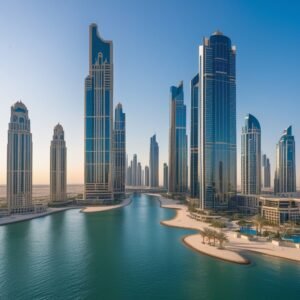
There’s also an appetite for ‘neighbourhood hubs’. These are smaller, more intimate developments that still prioritize community spaces but offer a slightly less formal and busier environment than larger master-planned communities. You might find these concentrated around retail areas or offering unique leisure facilities like private sports courts or wellness centres.
Essentially, you’re seeing a move away from the idea of simply buying a house in isolation and towards actively seeking out environments that promote social interaction and a strong sense of community – something really important for many families and young professionals looking to settle down in Dubai.
Emerging Hubs Beyond Downtown
It’s like Dubai is expanding beyond just its downtown core – it’s really becoming a city of interconnected hubs. You see this happening particularly with developments springing up along the coastline and in areas further out from the traditional business district.
These emerging hubs are offering different lifestyles and investment opportunities, appealing to a broader range of tastes and budgets than just luxury downtown apartments.
For example, you’re seeing significant growth around communities like Jumeirah Village Circle and Arabian Ranches – these areas are attracting families with their more suburban feel and access to green spaces. Then there’s the development along the Dubai Water Canal offering waterfront living experiences. It’s a shift towards creating diverse neighborhoods rather than just one dominant center.
Retail Real Estate Redefinition
Retail real estate redefinition is about how stores and shopping centers are changing due to new ways people shop – primarily online. You’re seeing a shift away from massive malls filled with traditional shops towards spaces that offer experiences and services.
This means you’ll notice more mixed-use developments popping up, combining retail space with residential apartments, offices, and entertainment options. The goal is to create destinations where people can live, work, and play, reducing the need to travel long distances for different activities.
For example, a shopping center might now include co-working spaces, fitness studios, or restaurants – things that attract more than just shoppers. Also, you’re seeing a rise in smaller, curated retail concepts within larger developments, offering unique brands and experiences that aren’t available elsewhere.
ESG Investing Dominates Demand
Imagine a Dubai property market where sustainability isn’t just a buzzword – it’s *the* driving force. That’s precisely what you’re seeing unfold in 2025, and it’s all thanks to a huge shift in demand centered around Environmental, Social, and Governance (ESG) investing.
The core of this change is that buyers are increasingly prioritizing properties with strong sustainability credentials. This isn’t just about solar panels – although those are hugely popular! It’s a much broader consideration encompassing energy efficiency, water conservation, smart building technologies, and even the social impact of developments.
Properties boasting LEED certifications or similar green ratings are commanding premium prices. Developments incorporating features like rainwater harvesting systems, greywater recycling, and locally sourced materials are particularly sought after. There’s a genuine desire to reduce carbon footprints and create healthier living environments – something that resonates deeply with today’s buyers.
Furthermore, there is increasing interest in projects committed to social responsibility. This includes developments that prioritize community engagement, affordable housing initiatives, and support local businesses. You are seeing a move towards creating vibrant, inclusive neighborhoods rather than just luxury residences.
Blockchain and Digital Ownership
Blockchain and digital ownership is rapidly changing how property is bought, sold, and managed in Dubai’s real estate market. You might be wondering what this really means – essentially, it involves recording property details and transactions on a secure, decentralized ledger, rather than relying solely on traditional paper documents.
This technology offers increased transparency and security for all involved. For you, as a potential buyer or investor, it can mean greater confidence in the authenticity of property records and reduced risk of fraud.
Imagine owning your apartment’s deed not just on paper, but also securely recorded on a blockchain. This creates an immutable record that is incredibly difficult to tamper with. Smart contracts – self-executing agreements coded onto the blockchain – could automate processes like rental payments and property transfers, streamlining transactions and reducing administrative overhead. It’s about creating a more efficient and trustworthy ecosystem for real estate dealings in Dubai.
Long-Term Investment Strategies
Every year brings shifts in the real estate market, and 2025 looks set to be a particularly interesting time for Dubai. When considering long-term investment strategies, it’s crucial to understand where the trends are pointing – and how you can position yourself to benefit.
One key area is luxury villas in areas like Emirates Hills and Palm Jumeirah. Demand hasn’t diminished, and these properties consistently hold their value, representing a stable investment for those seeking premium residences.
Think about it – these locations offer unparalleled lifestyle amenities and exclusivity, which will continue to attract high-net-worth buyers. This sustained demand translates into strong resale values over the long term.
Another promising sector is sustainable developments in areas like Dubai Maritime City and Jumeirah Beach Road. The shift towards eco-friendly living isn’t a fad; it’s becoming increasingly important to many, driving up property values for green buildings.
Investing now in properties with smart home technology and energy-efficient designs could yield significant returns as demand continues to grow. Focusing on these developments demonstrates foresight and aligns you with future trends.
Ultimately, a long-term strategy involves diversifying your portfolio—balancing luxury villas with sustainable developments – and carefully monitoring market dynamics. This approach will help mitigate risk and maximize potential gains as Dubai’s real estate landscape continues to evolve.
Guiding Dubai’s Real Estate: It’s Not Just About Sand and Skyscrapers Anymore…
Smart investors aren’t simply reacting to headlines; they’re anticipating the future.
The Dubai real estate market is undergoing a significant transformation, driven by evolving global trends and ambitious urban development projects. Shifts in demand are pushing towards sustainable living, mixed-use communities, and luxury residences catering to an increasingly discerning clientele. The continued expansion of infrastructure like the Expo City project and ongoing investments in tourism are undeniably reshaping property values and investment opportunities across the region. Furthermore, a growing emphasis on smart city technologies and integrated wellness facilities is attracting both domestic and international buyers seeking premium lifestyles.
Understanding these emerging trends isn’t just about knowing what *might* happen; it’s about proactively shaping your investment strategy. By recognizing the demand for innovative, high-quality properties with strong amenities and sustainable features, one can position oneself to capitalize on future growth and maximize returns. Delaying this understanding risks missing out on prime opportunities within a dynamic market.
Don’t wait for the landscape to change around you – shape it! Explore these shifting dynamics today and build a portfolio that reflects foresight, innovation, and a commitment to long-term success in Dubai’s vibrant real estate sector.
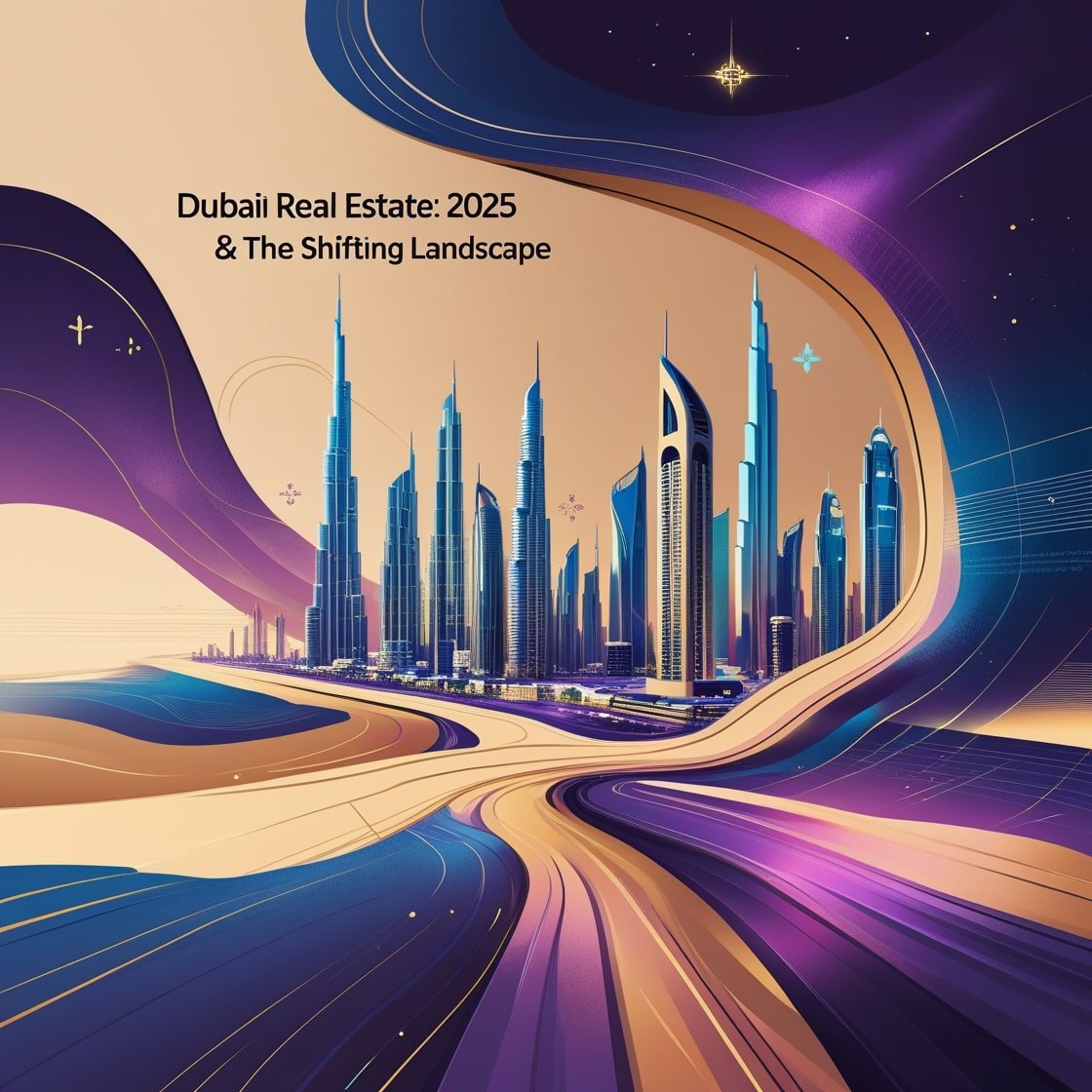
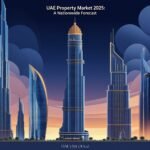
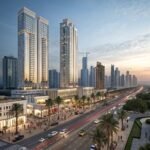
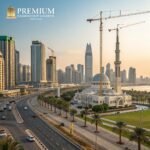
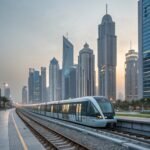
Leave a comment